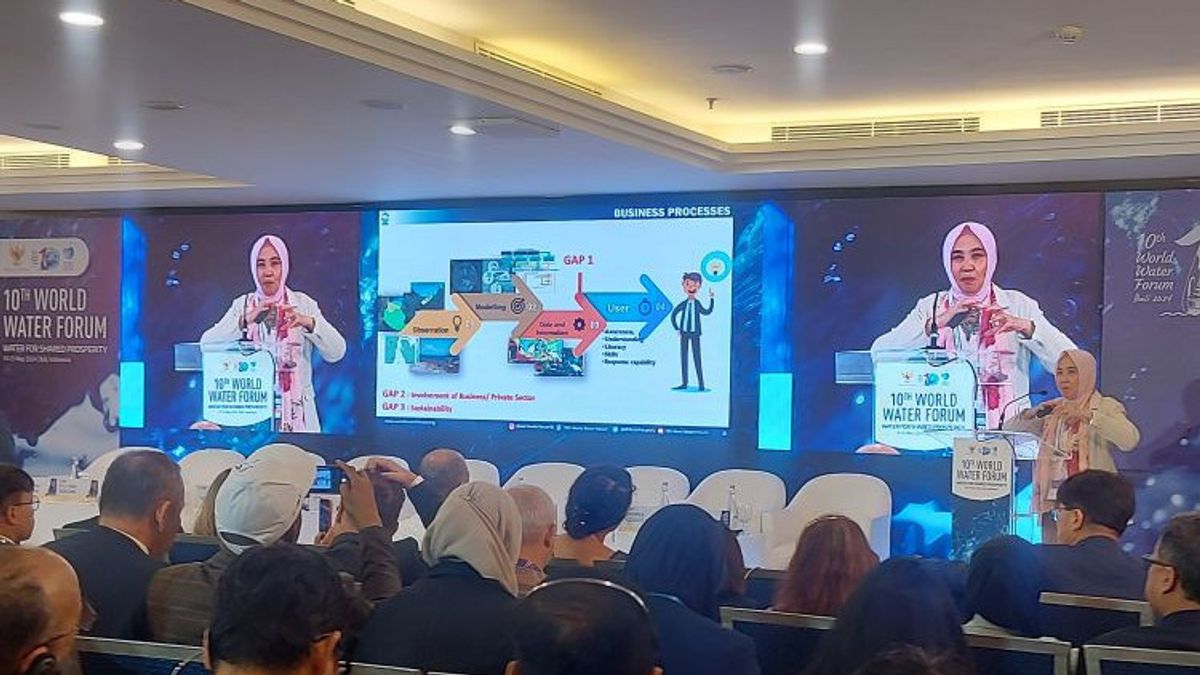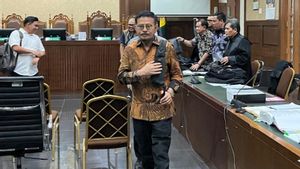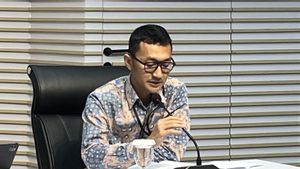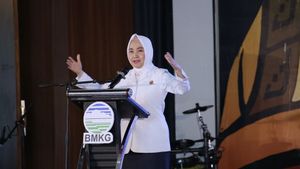JAKARTA - Head of the Meteorology, Climatology and Geophysics Agency (BMKG) Dwikorita Karnawati said that political leadership and attention are important for the sustainability of the mitigation system or early detection of natural disasters.
"I wanted to start this with a nightmare story 20 years ago. At that time most of our people didn't know what a tsunami was. It confused us and amazed because at that time we had no early warning at all," Dwikorita said in his presentation on the agenda of the 10th High Level Panel World Water Forum (WWF) in Bali, Monday, May 20, confiscated by Antara.
He said that the Aceh tsunami disaster in 2004 had taught a valuable lesson for Indonesia in the development of the tsunami early warning system, which at that time was still manual with a sensitivity level to earthquake tremors of a maximum of 20 seismographs.
The impact of the inaccurate system, said Dwikorita, resulted in 130 thousand people in the affected area and those scattered in the surrounding country reportedly being killed by large waves.
Responding to the disaster, said Dwikorita, the Indonesian government then reformed the early warning system to digital tools.
Dwikorita added that the national law also requires the student learning curriculum to provide education to students to get to know the tsunami.
Since then, the tsunami early warning system in Indonesia has begun to transform to the need for big data to support artificial intelligence (AI) systems in early detection of disasters.
Five years later, Dwikorita said the system developed was not yet fully optimal. The potential for the follow-up tsunami predicted by BMKG occurred in 2009, in fact nil.
"In 2009, we realized that there was a tsunami caused by an earthquake that most likely occurred in Palu. We are preparing ourselves for the community and the local government, but five years later nothing happened," he said.
SEE ALSO:
During that period, said Dwikorita, there was a change in the policy of the tsunami early warning system in Palu, due to the change of local government through the Pilkada.
"There has been a change in the local government, everything that has been prepared has been abandoned, because there has been a change in policy. We are returning to zero," he said.
When local residents were not ready in 2018, said Dwikorita, the Palu area, Central Sulawesi, was also rocked by a tsunami measuring 7.6 magnitude scale.
"The point is not about technology, systematic observations, but the continuation of implemented policies and the resulting policies," he said.
The English, Chinese, Japanese, Arabic, and French versions are automatically generated by the AI. So there may still be inaccuracies in translating, please always see Indonesian as our main language. (system supported by DigitalSiber.id)















